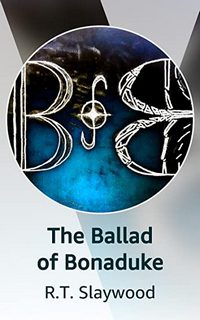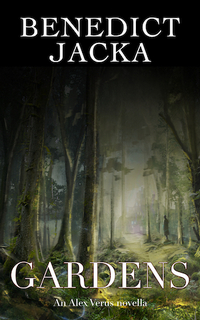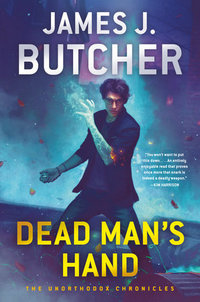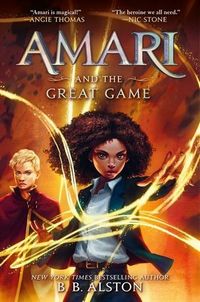by James J. Butcher
DETAILS:
Series: The Unorthodox Chronicles, #1
Publisher: Ace
Publication Date: October 10, 2022
Format: eARC
Length: 384 pg.
Read Date: September 16-20, 2022


The World of This Novel
This is a Fantasy world where the Muggles (here, they’re called “Usuals”) know about Magic and the Supernatural populace (called “the Unorthodox”). They’re largely not that comfortable with them, it doesn’t seem—and maybe look down upon them. We don’t get a lot of Usual/Unorthodox interaction, so it’s difficult to get a good read.
The Unorthodox are policed by a division of the Department of Unorthodox Affairs called Auditors. They’re witches with the power to enforce the laws governing the Unorthodox. And there are rules governing how the Unorthodox interact with Usuals. We don’t get to see a lot of them here—but you know they exist.
It occurs to me now that we really don’t get that much insight or information about all the situation the protagonists find themselves in (more below). Dead Man’s Hand cares about the story and will let the rest take care of itself. It took me until now (and this is the last section of the post I’m writing) to realize just how little we know because I didn’t care. My mindset apparently was the same as the novel’s: just tell me the story. I got the impression that there were rules and bureaucracy and some sort of history, but my focus was on this case.
That’s kind of cool, really—until it comes time to think about and write about the book.
So What Exactly is Dead Man’s Hand About?
One of our two protagonists is Grimshaw Griswald Grimsby. Grimsby grew up wanting to be an Auditor and tried to work on the requisite skills as much as he could to prepare himself. He’s not the most powerful witch, but he can do a lot with what he has (roughly the equivalent of “street smarts” vs. “book smarts”). He’s flunked out of the Auditor Training Program at the very end and has to go find a job in the Usual world.
He ends up as a performer/custodian at a Chuck E. Cheese-style restaurant, where the animated figures are powered by his magic. It’s humiliating, embarrassing, and eats at his soul. Grimsby went through some big trauma in his childhood; was on the verge of his dreams coming true before that ended; and now he’s scraping by demeaning himself and his abilities. It’s hard to find a character with supernatural abilities downtrodden or pitiful, but…Grimsby is. To put it concisely, he’s a schlub and he’s fully aware of that.
The other protagonist is a Usual who worked with the Auditors, Leslie Mayflower, better known as The Huntsman. He’s responsible for enough death and destruction amongst the Unorthodox that many don’t believe he actually exists—he’s an Urban Legend to keep people in line. In reality, he’s a guy who’s seen too much, done too much, and when personal tragedy hits, he’s done. He retires to drink himself into oblivion to avoid the memories and his own tragedy.
The Auditor who flunked Grimsby is considered one of the most powerful and dangerous witches in the world. Mansgraf is respected and feared—mostly feared. And when the novel opens—she’s been killed in a fairly brutal fashion (the only way she’s going to be able to be taken out). Mayflower spent his career (at least the bulk of it) as her partner—and he’s brought in to look at the scene to see if he can pick up any clues. He comes up with one—and doesn’t share it with the Department—and it points right to Grimsby as his prime suspect.
The Huntsman is back in the saddle for one last ride—to get vengeance, and his target is a man currently wearing a pink tutu with taco wings and an avocado wand. The Taco Fairy at Mighty Magic Donald’s Food Kingdom.
It’s almost patently obvious to Mayflower that Grimsby can’t have killed Mansgraf, but that’s where the evidence points. The Auditors won’t be far behind, and they’ll be less inclined to listen to Grimsby. So Mayflower has to stay one step ahead of them while protecting the witch and using him to help the investigation. The result is a buddy cop kind of story—without that much comedy or much in the way of buddy-ness. The duo drag themselves and fight their way through a variety of hazardous situations facing a variety of supernatural obstacles (some are solid takes on well-established ideas—some are new and surprising twists to them).
Broken Heroes
Mayflower is your typical brooding, laconic, action hero. He’s grizzled, he’s serious, and he really only cares about wrapping this up so he can get back to destroying his liver. But he’s fair, he’s got a strong moral core, and on some level, he feels sorry for Grimsby and wants to help him out. We know just enough of his backstory to understand what kind of man he is and the scars he carries.
We get more information about Grimsby and the hardships he’s endured. His cowardice, his lack of confidence, and his lack of career prospects make him a relatable kind of character, and you want to root for this underdog. Although you (and Grimsby) know that he’s going to need a lot of help from Mayflower to survive, much less succeed here. His problems are both played for laughs and treated with respect—frequently in the same paragraph. He has a genuine reason for being scared by things, but it can result in some laughs/grins. I keep thinking about Arthur from The Tick.
There’s a stoic, stay standing while the waves crash against you, feel to Mayflower’s outlook and the way he treats Grimsby. Yes, life is hard, but keep moving because that’s what you have to do. Whatever problems there are with that worldview, the immediate circumstances the duo finds themselves in, it works. if they survive it, maybe more nuanced approaches and help can be found. But that’s a problem for another day.
Comparing This to that Other Butcher
I really don’t want to spend a lot of time comparing this Butcher to his father, but 1. everyone I talk to about this asks about it and 2. the publisher’s description mentions him, basically inviting the comparisons. I’d prefer to consider him on his own—but here we are.
Honestly, I don’t see a lot of similarities—beyond seeing the influence that Jim Butcher has on many UF series (see Anton Strout, Kevin Hearne, Mike Carey, Benedict Jacka, etc., etc.). Sure, there are similar attitudes portrayed, similar character types and voices, and even a couple of situations that feel like I could easily name some parallels to in The Dresden Files. But again, every time I could point to something and say, “That’s his Dad,” I could point it and say, “That’s Peter Hartog” or “That’s Jacqueline Carey.” So maybe it’s just James J. Butcher.
His writing style is different, the characters aren’t just retreads of Harry or his friends, and the particulars of the plot don’t seem to fit something for Harry.
If you’re looking for someone who writes things in the same general vein as Jim Butcher, you can look to James J. Butcher. But if you’re looking for Butcher 2.0? There are other options that would be better.
So, what did I think about Dead Man’s Hand?
This is a solid introduction to a series. I want more of the worldbuilding, I want to see how Usuals/The Unorthodox interact when they’re not at a lousy restaurant, etc. But I’m more than content to wait for it—like I said, I didn’t really realize what we didn’t get until now.
I would say I’m not a huge fan of the epilogue—the events of it should prove interesting, even if I might want for a different storyline to be pursued—but I don’t like the way it functioned in the novel. Personally, I’d have been happier if it had been a prologue to book 2 or 3, and let the book end without it. I don’t think it was needed, and I think the book ending with Chapter 47 would give a stronger impression.
Aside from that, I really have no complaints about the book—I was solidly entertained and invested from Chapter 1 onward. I don’t know that I can say that I was blown away by anything—but there are some things I’m not talking about here because of space/don’t want to give something away, that I will be talking about for months (and have already started doing so). I’m not going to be announcing to the world that the next Jim Butcher/Seanan McGuire is here. But I will say that this new writer is really good and absolutely worth reading. You’re going to be entertained. Seriously, pick this up just for the kid’s birthday party scenes, and then stick around for the excitement.
In the last twelve months, we had to say goodbye to Jane Yellowrock this year and Alex Verus the year before, I’m glad we got to say hello to The Unorthodox Chronicles now. I think this series could be as long and as satisfying as those if it’s given the chance to grow naturally and doesn’t get overshadowed by Butcher’s DNA.
Disclaimer: I received this eARC from Berkley Publishing Group via NetGalley in exchange for this post—thanks to both for this.

This post contains an affiliate link. If you purchase from it, I will get a small commission at no additional cost to you. As always, the opinions expressed are my own.

 The Ballad of Bonaduke—
The Ballad of Bonaduke—

![]()





 Grab a book, any book.
Grab a book, any book.


